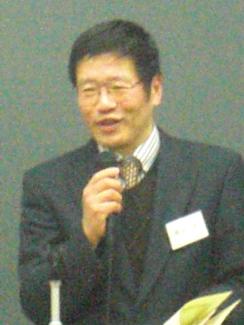Event

On the process of Imperial Japan’s surrender, we have Professor Tsuyoshi Hasegawa’s famous book, Racing the Enemy: Stalin, Truman, and the Surrender of Japan (2006), and the famous debate between Hasegawa and Professor Sadao Asada of Doshisha University in Kyoto. Their key issue was about which was more decisive in the Japanese surrender, Atomic Bombs or Soviet entry to the war against Japan on August 9th (Japan Time). Meanwhile, in Japan, young scholars, like Tamon Suzuki and Tomoyuki Yamamoto, presented new approaches to the end of the Pacific War, by presenting more meticulous accounts on Japan’s domestic political process. However, these wonderful works on Japan’s Surrender basically focus only on the ending story of the Pacific War. This short presentation intends to present a new approach to link this story with a greater international context. I am radically enough to argue that, without the early surrender of Japanese Empire, the Soviet Union could exclude the United Kingdom from superpower status in 1.5 years or two-years fighting against Japan. While the U.S. kept fighting against Japan, the U.S. could not afford to assist the U.K., and, more importantly, especially before the U.S. possessed A-bomb, it desperately depended on Soviet entry to the war against Japan. The Soviet Union took the war-entry card as a hostage for preventing the U.S. from any diplomatic and economic assistance to Britain. If Japan continued its fighting, British superpower status would have perished. Between the Yalta Conference in February 1945 and the Potsdam Conference in July-August 1945, the Soviets knew that they did not need any major war to edge out Britain from the status of superpower, but all they needed was politically taking away Turkey, Greece and Iran from British sphere of influence. Then, the Americans succeeded in A-bomb explosion test on July 16, 1945. It was the end of de facto hostage situation for the U.S., which changed the course of Anglo-Soviet conflict with the Soviets grabbing upper hand. I would like to give more details on the related events at the Potsdam Conference and the Tokyo politics especially after the Hiroshima bombing.
Futoshi Shibayama is a Historian and a Professor of International History and Strategic Studies at Kwansei Gakuin University, Japan. He received his Ph.D. in History at Yale and is a winner of the Shigeru Yoshida Award (2010) and Kiichi Saeki Award (2010) for the book, entitled『日本再軍備への道1945~1954年』